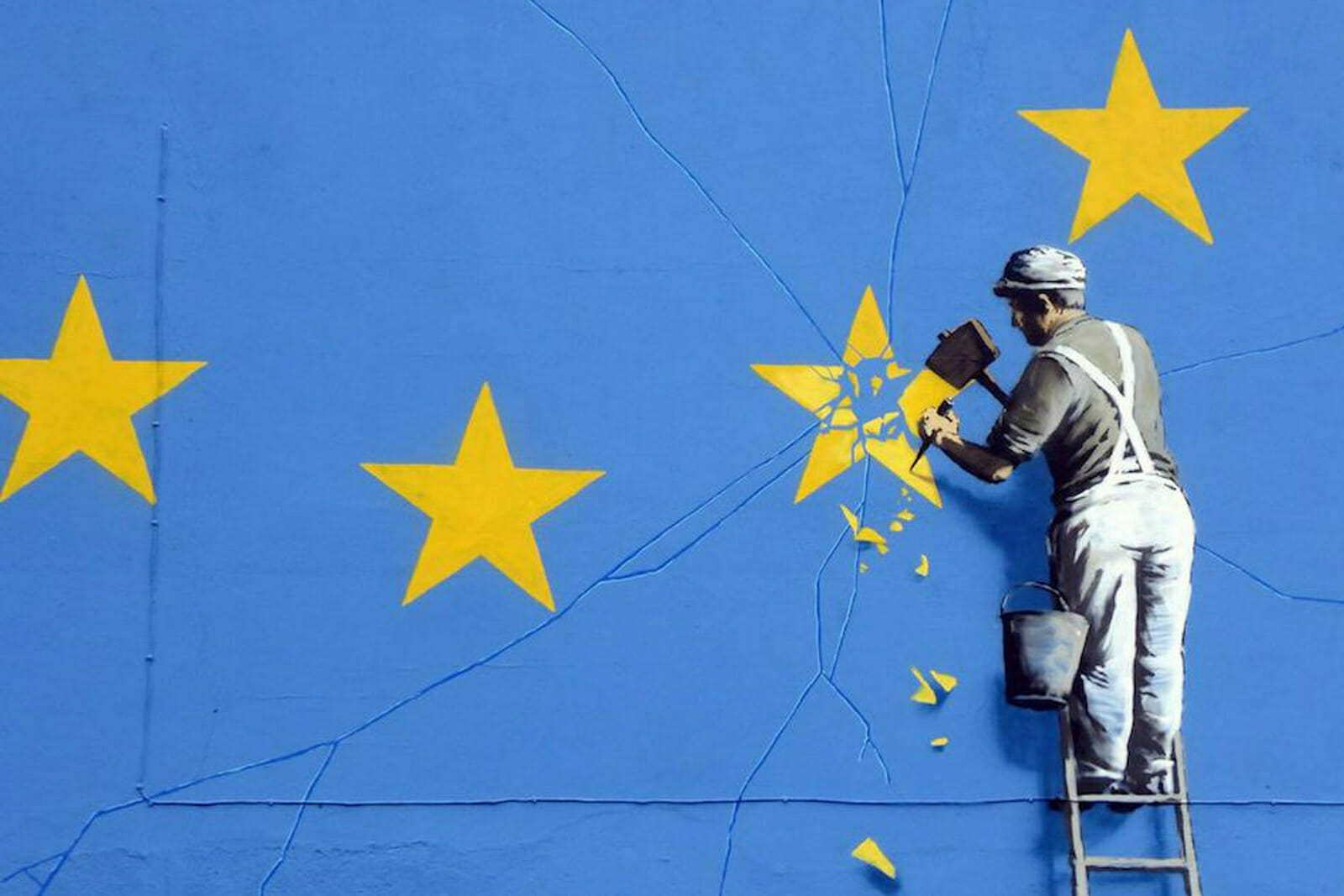
The Big Bang Of 2004 Has Turned into Chaos and Dissension Within the European Union
In 2004, the European Union accepted the entry of Middle and Eastern European countries into the European Union. This act later became known as the Big Bang of 2004. The entrance of Cyprus, the Czech Republic, Estonia, Hungary, Latvia, Lithuania, Malta, Poland, Slovakia, and Slovenia was accomplished on May 1, 2004. Prior to the entrance of these ten countries, the members of the European Union were Western European countries guided by the principles of the Schumann Plan, which called for ever-increasing economic and political integration. Sixteen years after the Big Bang of 2004, the European Union is internally torn with nationalist dissension, the United Kingdom is leaving the European Union under Brexit, and with the middle European states trying to change the objective of political integration of Europe into simply making the European Union an economic integrated trading block with political independence for each nation-state.
The Origins of the European Union
After the end of World War Two, Europe lay in ruins having been devastated by the intense fighting that occurred from 1944 to 1945. After the Second World War, France, under the Monet Plan absorbed the Saar land, a center of coal mining from Germany and turned it into a French protectorate. The objectives of the Monet Plan were to facilitate the economic recovery of France, and to restrict German economic growth. With the Cold War beginning, it became obvious to the United States that the West would need a rejuvenated Germany to help stem the advance of communism into Western Europe, so the Marshall Plan was conceived.
The Marshall Plan would grant $17 billion, roughly $200 billion in current 2019 dollars, in economic and technical assistance to the war-torn countries of Western Europe to help them recover. Prior to the start of the Marshal Plan, an additional $17 billion had already been distributed to Western Europe. While this aid was also offered to the Soviet Union and her satellite countries, the aid was refused. While the aid granted did not require repayment, it did come with conditions.
The United States used the Marshall Plan to pressure Western Europe to drop its trade barriers as a pre-condition for aid. Republicans in the U.S. Senate at the time was hesitant to provide aid. However, with the support of Arthur Vandenberg of Michigan and Henry Cabot Lodge of Massachusetts, a consensus emerged that in order for aid to be distributed, Western Europe would need to ease its trade barriers between each other, and a supranational organization would be set up to coordinate trade.
As a result of U.S. pressure, the Committee of European Economic Co-operation was formed in 1947. This committee gave birth to the Organization for European Economic Co-operation (OEEC) which coordinated the aid. The OEEC developed into the Organization for Economic Co-operation and Development (OECD). In addition to the formation of these European organizations, the United States funded prominent European federalists through the American Committee on the United States.
The Schumann Plan
After France had absorbed the Saarland and made it a protectorate, the French attempted to detach the Ruhr industrial region and to use the industrial basin as an added input into the French economy. The French attempt met with condemnation from the Western countries, and the French were forced to abandon this idea.
The French foreign minister, Robert Schuman, in a speech before the United Nations on May 9th, 1950 stated that a re-vitalized Germany must be placed inside a democratic Europe. After this speech was delivered, the Monnet Plan was scrapped, and a Council of Europe was founded, which was used to create the European Economic Community, also known as the Common Market in 1957. This was not a new idea by Schuman. He had first spoken about such a supranational organization at the Statute of the Council of Europe in London in 1949 which had created the Council of Europe.
Several principles were included in his speech before the Council of Europe, the most striking of these principles was the ultimate political goal of a Common Market: “By pooling basic industrial production and setting-up a new High Authority whose decisions will be binding on France, Germany, and other member countries, these proposals will bring to reality the first solid groundwork for a European Federation vital to the preservation of world peace.”
The first fruit of the speech by Robert Schuman was the establishment of the European Coal and Steel Community (ECSC) in April of 1951 in the Treaty of Paris. In addition to the formation of the EEC, two different communities were proposed, the European Defense Community, which was signed by the founding members of the ECSC but after being blocked by France was never ratified. The European Political Community (EPC) was also proposed and again was blocked by France. With the collapse of the EPC, the Spaak Committee was formed which led to the European Economic Community (the European Union).
The European Economic Community (EEC) was established by the Treaty of Rome in 1957. The EEC absorbed all of the previous structures created by the ECSC, and set the foundation for the creation of the European Union, and later the European Monetary Union.
Prior to the “Big Bang of 2004,” the underlying rationale for the ever-increasing economic and political integration of Western Europe was to form a European Federation which would make another European War impossible. Since the founding of the supranational institutions beginning with the ECSC, there has been peace and prosperity of Europe. For 75 years, there has been no armed conflict among the nations of Europe. Given the bloody history of European wars, this is a superlative achievement, which is now in danger of being dismantled by the actions of the new member states admitted into the EU during the Big Bang of 2004. The institutions mostly affected by the attitudes of the Middle and Eastern European nations admitted in 2004 is the European Court of Justice and the European Parliament.
Middle Europe’s Nationalism and Defiance of the EU Court of Justice
The dominant political party in Poland, the Law and Justice Party (PiS), began as a centrist political party, but over time has evolved into a populist and rightist political entity. The PiS was founded by Lech and Jarosław Kaczyński who are twin brothers. The PiS formed as a result of a merger with Solidarity Electoral Action and the Christian Centre Agreement. Later on, after the elections of 2007, PiS lost most of its centrist’s members and attracted support from nationalistic and populist parties such as the League of Polish Families and Self-Defense of the Republic of Poland. These parties have since ceased to exist, and the former members of these parties have joined the PiS. The PiS has become Eurosceptic and economically solidarist.
Brussels and Poland are increasingly at odds with the PiS’ attempt to change Poland’s judicial system where the impartiality of judges would be threatened. The effort began in 2015 with the PiS in November of 2015, when they passed a new law where the Sejm would in the future choose judges for the Constitutional Court of Poland instead of the court choosing their own replacements. When the Constitutional Court of Poland appealed to the EU for assistance to prevent the PiS from gaining total control of the judiciary in Poland, the European Court of Justice sided with the Polish Constitutional Court and advised the government of Poland that its actions violated the charter of the EU, and that it went against the laws of the EU.
Since the beginning of the clash between Brussels and Poland in 2015, the PiS has steadfastly resisted pressure by the EU to cease the attempt by the PiS to politicize the Polish judiciary system. Romania has also been warned by the EU court to refrain from judicial reforms which, in the eyes of the European Court of Justice, calls into question the impartiality of the Romanian judiciary. Hungary has also passed laws which threaten the rule of law as judged by the European Court of Justice. With the additional issues with Italy, regarding Italy’s deficit spending outside the limits of a member’s debt level, there is dissension in the EU’s ranks on multiple fronts.
Article 7 of the European Union
Article 7 of the European Treaty of the European Union provides for punitive measures against any member of the European Union. Article 7 was approved by the European Union prior to the Big Bang of 2004 in the Treaty of Amsterdam to deal with violations of Article 2 of the Treaty of Rome.
Article 7.1 provides that if one-third of the members of the European Union judge that the actions of the offending member finds that there is a clear risk of a serious breach, then a charge can be laid against the offending member. The charge then must be approved by two-thirds of the European Parliament. The accused member is then called before the Council, whereupon four-fifths of the EU Parliament must approve to identify the breach.
Article 7.2 provides that if the member continues in a serious and persistent breach of Article 2 of the Treaty of Rome, then a unanimous decision must be voted upon to begin to enforce Article 7.3.
Article 7.3 provides for suspending the offending member’s rights, to include the right to vote in the Council of Europe, until the offending member complies with the EU Parliament.
With three member states in open rebellion against what the majority of members of the European Union consider a serious breach, and the need for a unanimous vote to proceed to Article 7.3 a stalemate has developed within the European Union. If an Article 7.3 charge is brought against Poland, Hungary and Romania will vote no on the charge. If Hungary is subject to an Article 7.3 charge, Poland and Romania will vote no. If an Article 7.3 charge is brought against Romania, Poland and Hungary will vote no. Since an Article 7.3 charge requires a unanimous vote, it will be impossible for Brussels to impose discipline against these three members.
There is a current attempt to use the Cohesion Fund by Brussels to bring these 3 recalcitrant members into line by altering the amount of money transferred to these states from the richer members of the EU. However, this has generated a new fight with 15 member states, the poorer states, forming an alliance to resist this pressure by Brussels.
While the addition of new members into the European Union had been hailed as a step forward to a larger federation of Europe, the Big Bang of 2004 has sowed chaos within the ranks of the European Union and threatens the very existence of the European Union itself.
